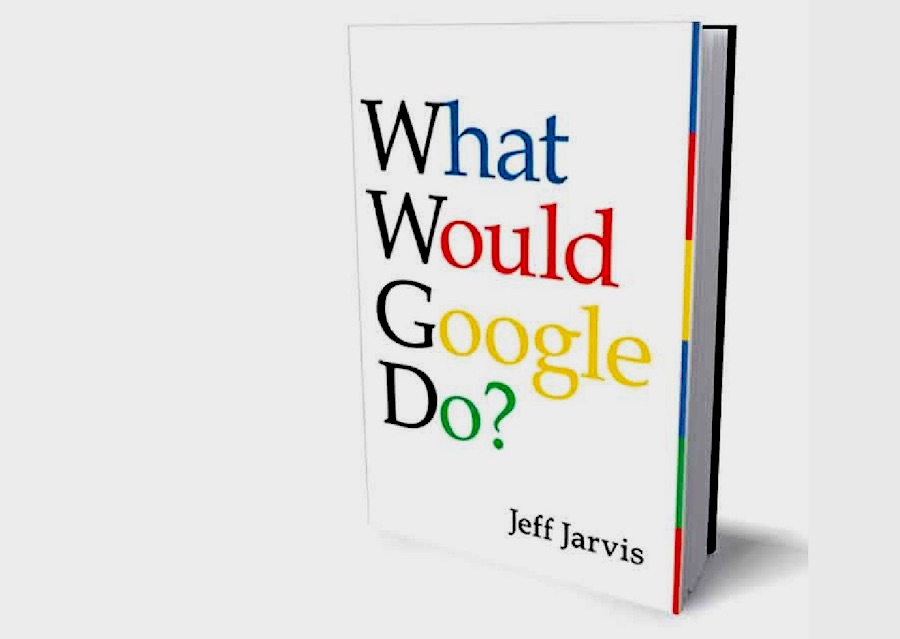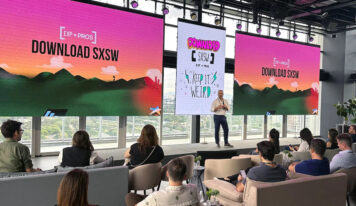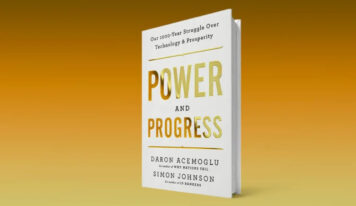How to meet the new requirements of a digital marketplace undergoing a rapid transformation process
Central Ideas:
1 – The greater transformative power of the internet and Google has little to do with technology or even business. It has to do with people and making new connections between them. Everything is about relationships.
Almost every new service Google launches is in beta – a test, an experiment, a work in progress, a semi-ready product. In Silicon Valley, there is a joke that says that Google’s products stay in beta forever.
3 – You can’t do everything yourself. By being part of collaborative networks, you can get help. In the case of newspapers, this can mean soliciting help from the public to finish stories, recruiting and mobilizing the public to submit stories, and getting them into business.
4 – GT&T (Google Telephone & Telegraph, AT&T’s version) is constantly striving to get more Internet access to more people for lower prices. “If we have 10% more connectivity in the US, we’ll have 10% more revenue in the US, and those numbers are big for us,” said Larry Page.
5 – There’s no reason for our kids to limit themselves to college coursework today; they can already do online coursework for courses at no less than MIT and Stanford. And you who have been a long-time graduate can do the same.
About the author:
Media theorist Jeff Jarvis is one of the most influential voices in the debate about how the press can reinvent itself in the Internet age. His proposals: listen more to readers, make them reporters, hyper localize. He is a professor of journalism at the University of the City of New York.
Introduction
The question I ask in the title is about thinking in new ways, facing new challenges, solving problems with new solutions, seeing new opportunities, and understanding with another perspective the structure of the economy and society. I try to see the world as Google sees it, analyzing and deconstructing its success from afar so that we can apply what we learn to our own companies, institutions, and careers. Together, we will reverse engineer Google. You can do the same with other competitors, companies, and leaders whose success you find staggering but admirable. In fact, you should do it.
Don’t get stuck trying to be Google by imitating what it does. This book goes beyond Google and its rules and beyond technology and business. It tries to see the world as Google sees it, to seek its new worldview and see it differently. In this way, this is not a book about Google company. It is a book about you, about your world, how it is changing for you and what you can gain from it. It’s hard to name an industry or institution-advertising, aviation, retail, automakers and car dealers, consumer product brands, computer companies, fashion designers, telephone companies, cable TV operators, political candidates, government leaders, university educators-that isn’t asking itself: What would Google do?
I’ll help you answer that question for your world in the next section of this book, interpreting the wisdom of the Google way as a set of rules according to which we should live and do business in any sector of society. Then, in the next section, I will illustrate how these laws can be applied to many companies, industries, and institutions, analyzing each one as an exercise in thinking and acting differently.
GOOGLE’S RULES
New Relationship
When I first turned on the Dell computer, it was in trouble. Suffice it to say that the computer had numerous defects and I tried to fix them countless times, spending endless hours on the phone, waiting for people from distant countries. Although I had paid for the home service, I had to take the device with me to get it fixed. Each time it came back I discovered a new defect. Finally, I got fed up and wrote a post with the title “Dell sucks”:
I just bought a new Dell laptop and paid a fortune for the four-year guaranteed home service.
The machine keeps crashing and the service is a liar.
I have all kinds of problems with the hardware: it overheats, the network card doesn’t work, and the CPU is overused. It is a rip-off.
But what really pisses me off is that they tell me that if they send someone to my house, which I paid for, the technician won’t have the parts, so I’d better send the machine in and be without it for 7-10 days plus the time I’ll spend on shipping… Dell sucks. Dell lies. Google this and know the truth, Dell.
Angry comments rained down. Many e-mails and calls told the same story of bad service. In other words, friends of friends got to know about the bad times of those who had bought the Dell product.
Dell’s vital signs began to fail. Customer satisfaction ratings dropped; financial results disappointed analysts, and the stock price plummeted.
After many counterproductive moves, Dell changed its mind. In February 2007, Michael Dell ordered the launch of IdeaStorm, a website where customers could tell Dell what to do by discussing and voting on the community’s favorite ideas. There, the company was not just listening but acting. Customers wanted Dell to make consumer computers with the Linux operating system instead of Microsoft Windows. Dell personnel argued that problems might arise if they installed one version of Linux instead of another, but customers pointed the way. Today, Dell sells computers running Linux. In a later interview, Michael Dell acknowledged that Linux machines might not be a great deal, but this was an important symbolic act, the milestone of a new partnership between the company and customers.
Throughout this book, we will return to the theme of this chapter – relationships – frequently. That’s because the greatest transformative power of the Internet and Google has little to do with technology or even business. It is about people and making new connections between them. It’s all about relationships.

New Public Exposure
I learned to watch Google searches with About.com, the first media company made for the Google era. The vast majority of its traffic comes from Google. A large proportion of its advertising revenue also comes from Google. About.com could be a division of Google, but it is not. It is simply built on the Google platform. About.com is owned by The New York Times Company, which bought it in 2005 for $410 million (and hired me as a consultant). I confess I had my doubts about the acquisition when it happened, but I was wrong. Today, as newspapers struggle in the new economy, About.com is one of the rare bright spots on the bottom line for newspaper companies.
About.com works hard to make itself accessible to Google. Authors learn about search engine optimization (SEO) – how to craft headlines, leads, page titles, and text around keywords so that Google recognizes the topic of each article. Authors also learn how to monitor the queries made in searches. If users ask questions that About.com has no answers to, they write articles with those answers. Keeping an eye on search terms is preemptive research with readers. Only, instead of asking what people read, About.com finds out what they want to read.
What’s good for big companies like About.com is good for any small company or organization – or for anyone. We all want to be found on Google. We all want Google Guice (pronounced “Google juice”). Customers now expect all the information in the world to be available with a single click. That is why every restaurant should have its menu, dishes of the day, opening hours, address, and other information online.
New attitude
Give people control and we will use it, declares my first law. Don’t and you will lose us. At a meeting of web 2.0 gurus on National Public Radio some time ago, I heard David Weinberger – coauthor of The Cluetrain Manifesto, author of Everything is Miscellaneous, and my colleague at Harvard – expand on this law. He may have thought this law was his, but I prefer to co-opt it as Weinberger’s Corollary to Jarvis’ First Law: “There is an inverse relationship between control and trust.” There is a counterintuitive lesson from the Google era: the more you control, the fewer people trust you; the more you pass on control, the more trust you receive. This is the antithesis of how companies and institutions operated in pre-internet history. They believed that their control engendered our trust.
Google’s algorithms and business model work because the company trusts us. This was the token moment that led Sergey Brin and Larry Page to found the company: the realization that by tracking our clicks and links, we would lead them to the good stuff and they, in turn, could lead other people to it. “Good stuff,” of course, is a very relative and exaggerated term. “Relevant” is a better description of what Google’s page rank (PageRank) presents us with.
Google doesn’t see all links from all people in the same way. The more links you have to your site, the more your links to other sites are worth. Therefore, Google gives more importance to those that we give more importance to. Google realizes that trust is something we share with each other. Or, put differently, whoever is our friend is Google’s friend.
Google has found value in trust. Others are creating systems of trust as the essence of their business. eBay has turned the downside of Internet commerce – fear of being ripped off by merchants we don’t know – into a unique opportunity by becoming the platform for trusted trading of physical goods between strangers. Amazon has also created a system of trust in its reviews (although it can be hacked by authors and their enemies) and in the “word of mouth” value of telling us that people who have bought a certain product have also bought product X.
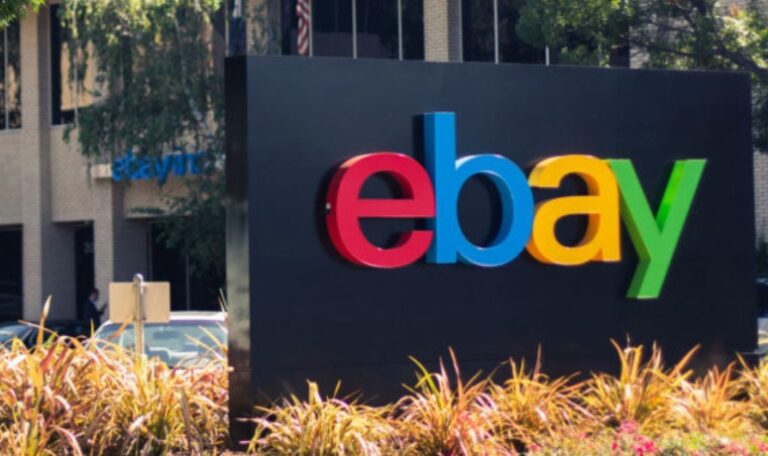
New Ethics
Almost every new service Google releases is in beta – a test, an experiment, a work in progress, a semi-ready product. There is a joke in Silicon Valley that Google’s products stay in beta forever – Google News supposedly wasn’t finished and was in the test for over three years – while Microsoft releases products and releases again and releases a third time before finally getting them (almost) right.
“Beta” is the new way Google never needs to ask for forgiveness. It’s also the new way for Google to say, “There are certainly bugs here, so please help us find them and fix them to make the product better. Tell us what you want it to be. Thank you.” Most established companies would consider it a crime to release unfinished products on the market: you can’t make a product that isn’t perfect – and isn’t finished – or the brand will suffer, right? Not if you get it wrong in the right way. “Innovation, not instant perfection” was Google VP Marissa Meyer’s advice to Stanford students. “The key is the fresh start. When you launch something, can you learn enough from the mistakes you’ve made and learn enough from your users to start over very quickly?” The Internet makes it possible to start over and develop instantly.
The next question is whether Google can live up to its golden rule as it becomes huge and unglamorous – as middle managers begin to criticize their bosses, as bonuses and greed or simple selfishness supplant the gospel of Google. Only time will tell.
So is Google evil? Thinking in a balanced way, I don’t think so. That is more than can be said for some companies that you and I could certainly name. Should other companies make the same commitment to evil? That should be carved upon the doors of Wall Street. If, in the corrupted process that led to the 2008 financial crisis, enough people asked whether seeking and hiring toxic mortgages and building and selling toxic assets was bad – rather than being other people’s problem – I wonder if we would have reached that nadir.
IF GOOGLE OWNED THE WORLD
Media
Edward Russell, the digital editor of the Telegraph Media Group, was following a fundamental rule of this book: decide what business you are in. The next day, I issued the same challenge to his competitor, the Guardian, where I work and where I have stimulated a series of seminars on the future of journalism. My task was to propose ten questions that newspapers should answer today. The first: Who are we? Newspapers should no longer think of themselves as manufacturers or distributors. Are they in the information business? It seems obvious, but when information can be very quickly and very easily commoditized, this is a dangerous position. Are they in the community business, like Facebook? Not exactly; few newspapers allow communities to organize themselves. Are they in the knowledge business, like Google and Amazon? Not yet; they haven’t put themselves in the position of knowing what their readers know. In the end, I encouraged newspapers to become platforms for larger news networks – but they are not there yet.
Do you think it’s silly? The old mass media still has value, you argue. Online revenue does not keep up with print revenue, as readers move to the internet, the money from newsstands disappears. In advertising, print dollars are replaced by mere pennies online. Don’t you think they still need paper? Yes, but the scale of the newspaper business will never be the same, now that they no longer have the local monopolies. In the shift from physical to digital and from mass to niche, the best way to exploit the value of a newspaper’s legacy is to use the megaphone of the old media to promote and build on what comes next. First of all, the newspaper has to decide what’s next. It has to design and build its post-journal products – retraining and restructuring staff and getting rid of unnecessary costs – before the presses go silent. You have to design the new products even at the expense of the old ones; cannibalize them. Convincing the public and advertisers to move into the future is better than following them after they discover other news sources.
Be a platform. Be part of a network. You can no longer do everything yourself. By being part of collaborative networks, you can get help. In the case of newspapers, that can mean soliciting help from the public to finish stories, recruiting and mobilizing the public to submit stories, and getting them into business. It certainly means welcoming their contributions and corrections (one way of following the rule: get it right).
Newspapers can offer contributors raw material to create products – reports commenting on, videos to remix, assignments to complete. The New York Times and NPR have announced programs to make content available for mashups and remixes via APIs (Application Programming Interfaces).

Utilities
Google Power & Light. Here is our only example of an industry that is being reshaped according to Google’s image, and it is not hypothetical. Google.org, the philanthropic part of the company – supported by 1% of Google’s profits – is trying to reinvent the energy industry and, with it, the entire energy sector. It is funding companies and research looking for ways to produce energy that costs less than that generated by burning coal. The geeky name of the initiative: RE<C (renewable energy cheaper than coal).
Unlike other Google.org projects -dedicated to early warnings of disease epidemics, better management of public services, and increasing entrepreneurs in the developing world-, RE<C is not merely altruistic. It is an exercise in enlightened selfishness. Google and its megaplexes of servers are giant consumers of electricity, with an increasing impact on the economy and the Earth. Google is not free from the backlog of atoms. If Google can help create cleaner, cheaper electricity everywhere it operates, it will improve its own bottom line (the cost of energy is approaching the coast of computers on Google’s income statement). This will assuage accusations that Google is becoming a major contributor to carbon pollution).
GT&T: what Google can do. This is the real dream: Google everywhere. Google is constantly striving to get more internet access to more people for lower prices. This campaign is in your interest. “If we have 10 percent more connectivity in the United States,” Page told Reuters, “we will have 10 percent more revenue in the United States, and those numbers are big for us.”
Page was in the capital to lobby the government with the goal of taking the so-called blanks between TV channels – which will become available when the United States moves to digital television – and making them freely accessible, like the frequencies used for wi-fi. The move would allow the creation of a “turbocharged wi-fi,” which proponents say would give us speeds of billions of bits per second, instead of the ten million we have today. We would be able to watch, create, and stream videos from anywhere. That would be a jolt to the shameful broadband penetration in the US, which in 2007 ranked 15th in the world according to the OECD.
What would an ideal cable and communications company – Google Telephone & Telegraph (GT&T) – look like? First of all, it would be a platform to help us do what we want to do. More than making connections and building content, it would turn things around and help us create, share and sell. It would be the home of our ambitions. Just as Google bought Blogger, allowing us to publish, and YouTube, allowing us to stream videos, its cable company would be our personal technology platform, with tools to create content, products, and even businesses. If we were successful, so would she be.
Social Security
Too often when I get into a discussion about citizen journalists, some member of the grumpy press class – thinking they are smart and apparently believing they think only of themselves – growls at me: “Why should I trust a citizen journalist? You don’t want a citizen surgeon, do you?” No, not really.
But I do want the healthcare industry to open up to the Google era and take full advantage of the opportunities it presents them to gather and share more data; to connect patients with other patients in a community of shared experience and needs, and to use the potential of collaborative tools and the open-source movement to advance medical science.
St. Google Hospital: the benefits of public exposure. In 2008, Google launched an online health service (available at google.com/health), in which users can enter their physical conditions and the medications they take, as well as the results of tests, such as cholesterol rates, which they can download from a limited amount of health companies that have signed up so far. Patient information is not public, although some of us would like to be able to post our pages openly to get the benefits of medical networks. Google’s goal is to give users more information (she sends me new stories about fib-A) and to leave them in control of their own information because currently, they have very little control.
If universities, governments, and doctors shared their standardized, open and free data – with encouragement for patients to enter their knowledge and experience – would this generate a greater benefit than the current less transparent structure? If more research became open, what medicines and companies could emerge from this? Who could organize this knowledge for us? Google has opened up most of the human knowledge today – everything digital and searchable – so I believe it would do the same for medical knowledge. I hope I’m alive when that day comes.
Google Mutual Insurance: the business of cooperation. Imagine a forward-thinking company – Google, for example – creating a new insurance contract: if the community becomes healthier and decreases the costs – and increases the effectiveness – of its care, the insurance premium decreases. The offer could motivate the community to push its members to become healthier and smarter. Today’s insurance companies try to get us to act healthier by directing us to join gyms or eat more wisely. But – aside from making us feel better – the direct economic benefit on medical costs is almost all from the insurer, and we never see a transparent accounting of the impact. Insurance Contract 2.0 puts the community in charge and gives it mutual benefits and responsibilities. Giving control to the community means giving it information. The insurer would have to offer members full transparency in terms of actuarial data, costs, and profits. The insurer would have to pressure doctors to hand over data about their work so that community members can make smarter decisions about treatment.
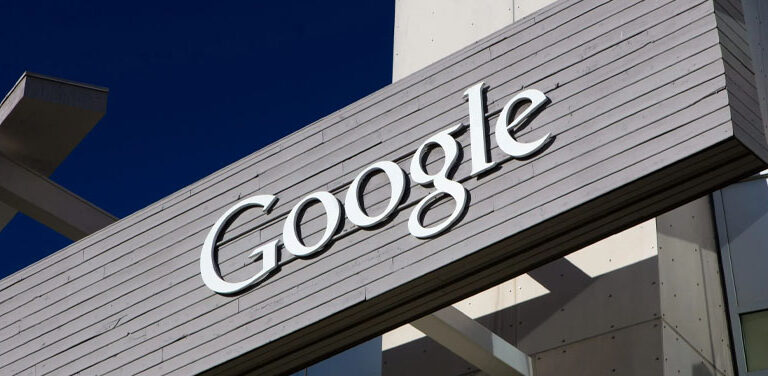
Public Institutions
Who needs a university when you have Google? All the world’s digital knowledge is available for search. We can connect those who want to know to those who know. We can connect students to the best teachers for them (who may be students too). We can find experts in any subject. Textbooks no longer have to be petrified pages, but can be linked to information and discussions; they can be the product of collaboration, updated and corrected, can answer questions and have competitions about general knowledge, even singing and dancing. There is no reason for my kids to limit themselves to one college course; today they can already do online assignments for courses at no less than MIT and Stanford. And there is no reason for me, having graduated so long ago, not to take those courses as well.
Perhaps we need to separate youth from education. Education is eternal. Youth is the time to explore, mature, and socialize. We can create a youth preserve – as Google does with its inventors – to nurture and challenge the youth. What if we told students that, like Google’s engineers, they should take a day a week or a course or a semester in college to create something: a company, a book, a song, a sculpture, an invention? The college could act as an incubator, advising, encouraging, and nurturing their ideas and efforts. What could come out of it: excellent things and mediocre things. However, it would force students to take more responsibility for what they do and to get out of the straitjacket of uniformity. It would make them ask questions before they get the answers. It could reveal to them their own talents and needs.
The Google United States. What if one of the Google guys was president? Earlier, I told you that I witnessed the contrasting worldviews of Larry Page and Sergey Brin versus that of Al Gore in terms of the environmental and energy crisis. Google’s founders saw the world and its problems through their engineering eyes. Instead of seeking solutions through regulation and prohibition, they relied on invention and investment: not doing versus being able to do. If the geeks take over – and they will – we can enter an era of scientific rationality in government. Other non-politicians have improved government. Michael Bloomberg has run New York City like a business. Arnold Schwarzenegger with the power of personality. A Google guy could simply run government like a problem-solving service.
Whether they take over or not, Google and the internet will have a profound impact on how the government is run, its relationship with us, and our expectations of it. Now that we have the technological means to open up government and make every action transparent, we must insist on a new ethic of openness. So let’s abolish the Freedom of Information Act and turn it inside out.
Why do we have to ask our government for information? The government should ask to hide it from us. All government actions should be open, findable, and linkable by default. The information that the government knows should be online with permanent addresses so that we can link it, discuss it, and download it to analyze. The government needs a new and transparent attitude: government officials and agencies should write blogs and engage in open conversations with constituents. They should webcast all meetings since technology now facilitates this. Remember Weinberger’s Corollary to Jarvis’ First Law: there is an inverse relationship between control and trust. The more our leaders trust us with information, the more we will trust their governance. Right now, there is very little trust on either side.
Conclusion. When we talk about the Google era, we are talking about a new society. The rules explored in this book – the Google rules – are the rules of that society, built on connections, links, transparency, openness, public exposure, listening, trust, wisdom, generosity, efficiency, markets, niches, platforms, and networks, speed, and abundance. This new generation and its new worldview will change the way we see and interact with the world, and the way companies, governments, and institutions interact with us. It is just beginning. I wonder where this change will take us. But I am very happy to be here with you today to witness that birth.
FACTSHEET:
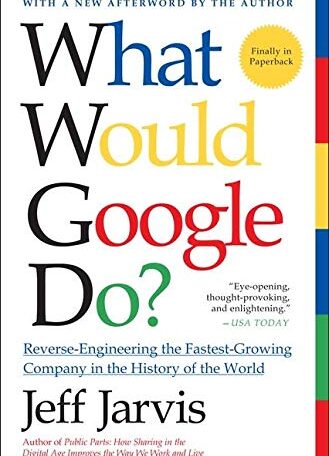
Original Title: What Would Google Do?
Author: Jeff Jarvis
Photos: Matthew Fournier, Stéphan Valentin / Unsplash; publicity
Review: Rogério H. Jönck
![[Experience Club] US [Experience Club] US](https://experienceclubus.com/wp-content/uploads/2021/03/laksdh.png)









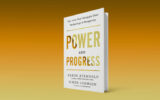
![[Experience Club] US [Experience Club] US](https://experienceclubus.com/wp-content/uploads/2021/03/logos_EXP_US-3.png)


